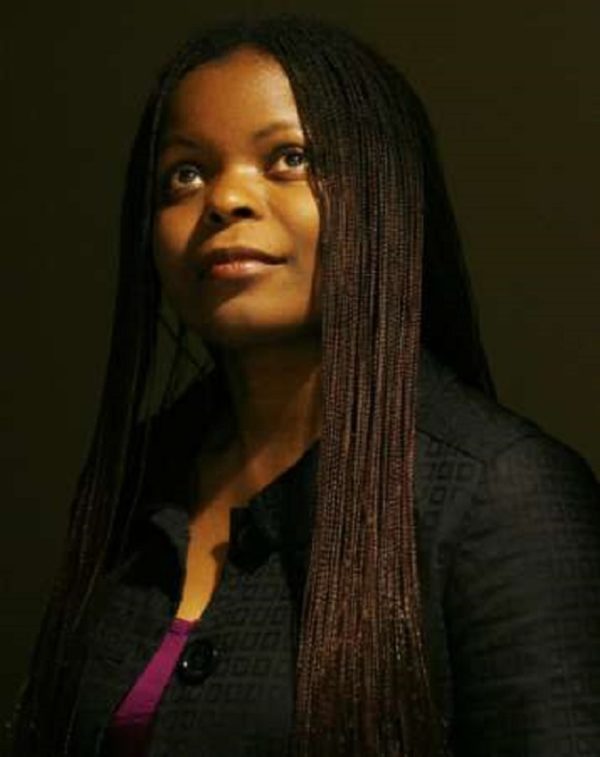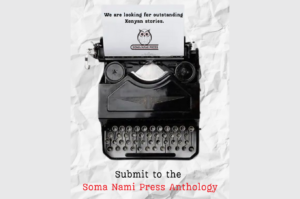
A little while back, Petina Gappah, who was recently named a judge for the 2018 Sunday Times EFG Short Story Award, had a conversation with Bongani Kona, 2016 Caine Prize finalist and Contributing Editor at Chimurenga Chronic. The interview was conducted for The Johannesburg Review.
Gappah’s debut collection of stories, An Elegy for Easterly, won The Guardian Best First Book Award in 2009 and was shortlisted for the Frank O’Connor International Short Story Award and the Los Angeles Times Art Seidenbaum Award for First Fiction. Her first novel, The Book of Memory, was longlisted for the 2016 Baileys Women’s Prize and nominated for the 2017 PEN Open Book Award and the 2016 Prix Femina etranger. Her most recent work is the story collection Rotten Row, and her forthcoming is the novel The Last Journey of Doctor Livingstone. For her efforts in changing the literary scene in Zimbabwe, Gappah was named Brittle Paper’s African Literary Person of 2016. Her The New Yorker short story, “A Brief History of Zaka the Zulu,” is currently shortlisted for the 2017 Brittle Paper Award for Fiction. This year, her Brittle Paper column for aspiring writers proved popular.
In the interview, Gappah and Kona discuss black writers in Southern Africa, her balancing of writing with her other profession as a lawyer, the progression of her career, her mastery of dialogue, Zimbabwean languages, politics and music, the humour in her writing, her approaches to writing short stories and her novel, and how her body of work captures “what it has meant to be Zimbabwean in recent times.”
Read an excerpt from the conversation.
Bongani Kona: I’d like to begin by quoting a sentence from TT Moyana’s 1976 essay, ‘Problem of a Creative Writer in South Africa’, in which he says: ‘An additional difficulty for the creative artist in South Africa, especially the black writer, is that life itself is too fantastic to be outstripped by the creative imagination.’ Moyana was of course talking about apartheid South Africa but my guess is that his observations would resonate deeply with fiction writers from Zimbabwe. Has that been your experience?
Petina Gappah: That is such a great quote, and yes, some of the reception to what I write finds an echo there. A lot of my writing is triggered by something true, either something I read in the papers, something I overheard—I am an inveterate eavesdropper—or something that happened in my very large, and very extended, family. And yet it is precisely those things that no one believes are real.
Take ‘The Death of Wonder’, the ‘ghost’ story in Rotten Row. It is partly inspired by the tale of a young man who was murdered in the village of Gokwe, but who ‘refused’ to stay dead as his spirit wanted to avenge his death. I don’t believe in vengeful ghosts myself but I was writing a story set in a rural village where such beliefs are prevalent. I wanted to respect, and indeed to honour, those beliefs even while questioning them, so I made my narrator a sceptic.
The murdered man is not so much a ghost as he is a manifestation of collective guilt; his restless spirit ravages the village in a quest to right a world that has been upended through the horrible violation of his murder. This is the kind of ghost we call ngozi; it is not an incorporeal entity but a vengeful force.
The Book of Memory also has an ngozi theme, and I will go back to the idea of ngozi in my future work. The concept interests me both as a writer and a lawyer: it is one of the most powerful tools of social control that our ancestors developed. How do you prevent and punish murder in a society with no jails? There was banishment of course, but ngozi was the most powerful deterrent. Commit murder and you damn your descendants until reparation is made. It is an extraordinary belief, terrifying really, the idea of vengeance being pursued through the generations. It also has something powerful to say about restorative justice.
I have found that I cannot write about my people without writing about some of these beliefs, even though the beliefs may seem, at first sight, to be out of step with modernity.
Bongani Kona: Your work, beginning with An Elegy for Easterly, moving to your debut novel, The Book of Memory, and then to your most recent collection, Rotten Row, has chronicled, with humour and sensitivity, ‘what it has meant to be Zimbabwean in recent times’, as you once summed it up in an interview. I know you wanted to be a writer and a journalist after high school, but you went on to study law at the University of Zimbabwe, then on a master’s degree at Cambridge and a doctorate in International trade law at the University of Graz, in Austria. Did you continue writing while you pursued your studies?
Petina Gappah: For many reasons, mainly to do with the bottle-necking of education for black people in Rhodesia, I was the first descendant of my paternal and maternal grandparents to go to university. We are talking the first in three generations. Actually, in all generations! Big things were expected of me, and my teachers and parents encouraged me to be what my father called a ‘Professional’.
In contrast, I wanted to study English or history and be a writer, but I was not sure how that could be because when I was growing up there was simply no Zimbabwean who was like me: black and female, who wrote novels in English. There were no black Zimbabwean women writing fiction in English—Zimbabwe was a baby country when I was a child. We are talking years before the advent of Yvonne Vera and others. I knew only male black fiction writers. In my final year of school, I was delighted to meet a lawyer called Valeria Muchero who came to talk to us about careers in law. Her life seemed more real and possible to me than Dambudzo Marechera’s, for instance.
In fact, it was only when I was in the third year of my law studies that I read Tsitsi Dangarembga’s Nervous Conditions, the first novel in English by a black Zimbabwean woman. It had been published five years before, in 1988, and had a profound effect on me. It shifted everything for me. But I read it in 1993, and by then I was one year from finishing my studies. Luckily, I found I really loved the law, and had an aptitude for it.
But though I studied law for eight years in total, and worked as a lawyer for fourteen, there has never been a time, since the age of eleven, in which I did not write. A lot of my early work was mimicry. As a ballet-loving, horse-and-dog-crazy kid, I wrote ballet stories and stories about horses and dogs—without ever having danced, ridden or owned a dog. I wrote nonsense poetry in imitation of Ogden Nash and Hilaire Belloc. I wrote plays that we performed at school. I then wrote a science fiction novel set on Mars, complete with illustrations. At some point in my late teens, I wrote a Mills and Boon. In my student years, I was hit hard by The Ragged-Trousered Philanthropists and by Marx and Engels, and wrote atrocious Marxist-Leninist inspired poetry. So I accumulated copious amounts of stuff at various stages of completion.
Read the full interview HERE.









COMMENTS -
Reader Interactions